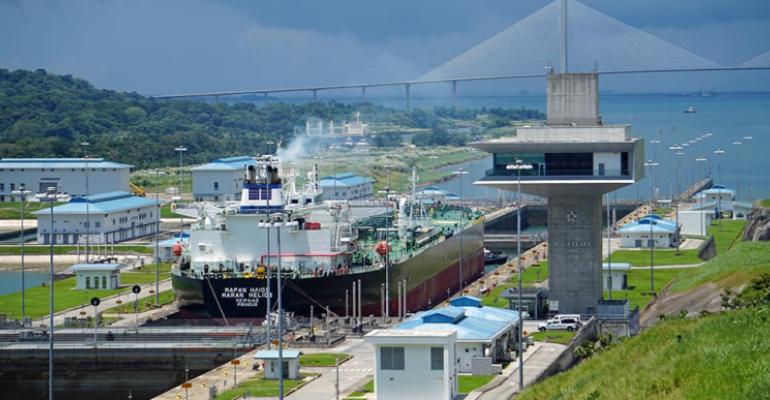In its weekly report broker Poten noted that oil tankers were relatively minor participants in the canal’s transit numbers but this could drop to zero as the Panama Canal cut booking slots to 25 daily from 3 November and will gradually reduce the number of booking slots to just 18 by 1 February 2024, in the worst drought in 73 years.
The Neo-Panamax locks that came into operation in 2016 are largely dominated by containerships and gas carriers in terms of transits.
“The tankers that use the Neo-Panamax locks are Suezmax and Aframax tankers. Many of these large tankers are in ballast, with owners using the Canal to reposition their vessels in the US Gulf after discharging on the US West Coast,” Poten said. The report noted that few Suezmaxes pass through the canal laden as current draught restrictions mean they can only carry around 12,000 tonnes of cargo more than an Aframax.
With booking slots reduced to 18 by February next year Poten expects these to be taken up by containerships and the occasional gas carrier.
Listen to a recent episode of the Seatrade Maritime Podcast with Panama Canal Administrator Ricaurte Vasquez Morales
“Large oil tankers will not feature in this trade anymore. They will not be able to schedule in advance like container ships do and they can likely not compete for the auction slots,” the report stated. Bids for additional auction slots have skyrocketed in recent months with a new high winning bid of $2.85 million reported for a VLGC.
Unlike containerships operating on fixed schedules tramp vessels will eschew transiting the waterway.
“The stark reduction in slots will push many of the tramp vessels (including tankers and dry cargo ships) away from the Canal. This will lead to more ton mile demand and possibly changes in segment utilization as longer hauls may stimulate the use of larger vessels,” Poten said.
Copyright © 2024. All rights reserved. Seatrade, a trading name of Informa Markets (UK) Limited.
Add Seatrade Maritime News to your Google News feed.  |

